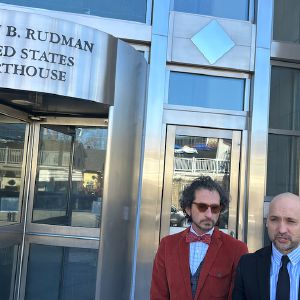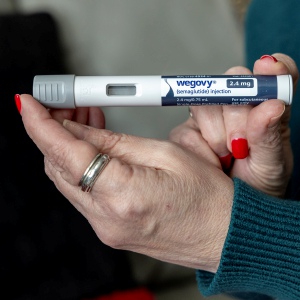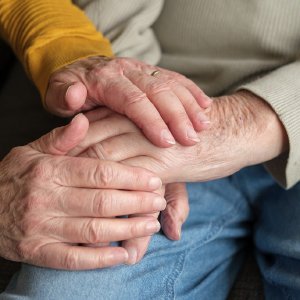Opinion: A dignified choice: The case for compassionate end-of-life care

The photographs at the memorial for Barbara Filion at the Newcastle Commons on Sunday, June 8, 2024. As a resident of Portsmouth, Filion decided to seek medical aid in dying in Vermont at the age of 82. Courtesy
| Published: 02-26-2025 6:30 AM |
Brent Richardson board chair of the New Hampshire Alliance for End-of-Life Options. He is a resident of Chester.
Paul was an avid outdoorsman and trail runner, a patent attorney with two young sons and a wonderful wife. At age 51, he was stricken with ALS often called Lou Gehrig’s disease, for which there is no cure. He was my patient.
By the time Paul was 53, he could no longer walk, swallow easily or breathe without effort. His medical team believed he had less than six months to live. Facing this grim reality, Paul made a clear and difficult decision: He wanted to end his suffering on his own terms. He asked me for help.
Paul wanted medical aid in dying (MAiD), an option available in Vermont and Maine but not in New Hampshire. Without access to this compassionate choice, Paul was forced to stop eating and drinking, enduring a slow and uncomfortable death by dehydration and starvation. He and his family pleaded for a more humane alternative, but my hands were tied by state law.
I am a nurse practitioner (APRN) with more than 25 years of experience in pulmonary, critical care and palliative medicine. I am board-certified in healthcare ethics, chair my hospital’s ethics committee and am a fellow in Bioethics at the Harvard Medical School Center for Bioethics.
As a clinician and ethicist, I strongly support HB 254, the New Hampshire End of Life Freedom Act. This bill would establish a legal framework for medical aid in dying for terminally ill adults who have decision-making capacity and a prognosis of less than six months to live and who make a fully informed request for aid in dying without pressure or coercion.
Throughout my career, I have worked to treat serious illnesses and save lives when possible. But when death is inevitable, my role shifts to ensuring my patients can die with dignity, comfort and peace. While hospice and palliative care can provide relief for many, some patients experience suffering that cannot be fully alleviated, even with the best medical interventions.
For these patients, there are fates worse than death. As medical professionals, we must be allowed to help our terminally ill patients who endure unbearable pain — whether it is the agony of metastatic bone cancer or the relentless struggle for breath caused by late-stage lung disease.
Article continues after...
Yesterday's Most Read Articles
 After four decades collecting carts, Ricky Tewksbury will retire when Shaw’s closes mid-April
After four decades collecting carts, Ricky Tewksbury will retire when Shaw’s closes mid-April
 NH attorney general asks federal appeals court to reinstate ‘divisive concepts’ law struck down by lower court
NH attorney general asks federal appeals court to reinstate ‘divisive concepts’ law struck down by lower court
 ‘When we talk about promises’ – Keach park light plans grow dim
‘When we talk about promises’ – Keach park light plans grow dim
 Updated Concord middle school design to cost another $3 million
Updated Concord middle school design to cost another $3 million
 Federal judge temporarily reinstates legal status for Dartmouth PhD student from China
Federal judge temporarily reinstates legal status for Dartmouth PhD student from China
 Two injured in accident in Loudon
Two injured in accident in Loudon
HB 254 would provide a compassionate alternative — a true “gentle landing” for those seeking peace in their final moments.
Unfortunately, misinformation continues to cloud this critical issue. The most egregious of these claims are that MAiD targets the disabled. This rhetoric is simply false. MAiD is only for terminally ill patients who meet very strict eligibility criteria. Disability alone does not qualify someone for MAiD, nor does any external pressure or coercion.
The ethical foundation of medicine rests on four principles: patient autonomy, beneficence, non-maleficence and justice. Medical aid in dying aligns with all four. It respects a patient’s right to make informed choices (autonomy), seeks to relieve suffering (beneficence), prevents unnecessary pain (non-maleficence) and ensures that all eligible patients have equal access to compassionate end-of-life care (justice).
HB 254 includes the same rigorous safeguards found in the 10 states where MAiD is already legal. For nearly 30 years, these laws have protected patients from coercion, ensured proper medical oversight and prevented insurance companies from penalizing families. Additionally, HB 254 protects both individual choice and personal beliefs. No patient would ever be required to choose medical aid in dying, and no healthcare provider would be compelled to participate. The bill simply offers an option while respecting all religious and moral convictions.
New Hampshire already recognizes individual medical freedom under RSA 137-J, which states: “The State of New Hampshire recognizes that individual persons have the right, founded in the autonomy and sanctity of a person, to control the decisions relating to the rendering of their own medical care.”
HB 254 embodies this principle. It grants competent, terminally ill adults the freedom to make deeply personal end-of-life decisions with dignity and compassion.
On March 3, the House Judiciary Committee will vote on HB 254. As that day nears, I urge legislators to support this legislation. HB254 does not force a choice on anyone — it simply allows those who are suffering to make their own. Let’s ensure that no one else has to endure what Paul did. Let’s give patients the option of a peaceful, humane passing.
It is time to bring compassionate end-of-life care to New Hampshire.







 Opinion: HealthTrust's decision to drop anti-obesity medications is a step back in the fight against a chronic disease
Opinion: HealthTrust's decision to drop anti-obesity medications is a step back in the fight against a chronic disease Opinion: Courage and care count
Opinion: Courage and care count
